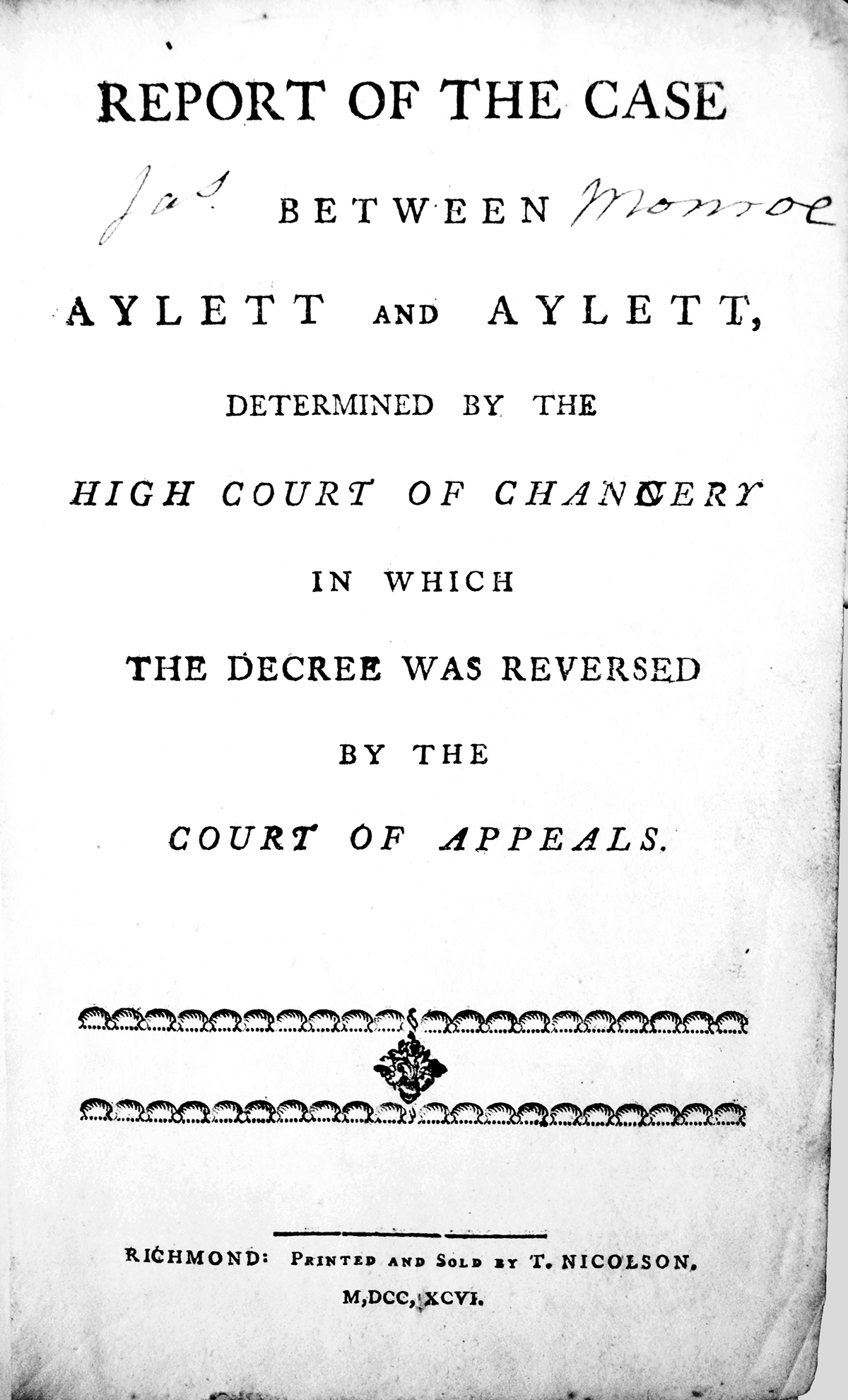Report of the Case between Aylett and Aylett, Determined by the High Court of Chancery, in Which the Decree Was Reversed by the Court of Appeals
by George Wythe
| Report of the Case between Aylett and Aylett | ||
|
at the College of William & Mary. |
||
| Author | George Wythe | |
| Published | Richmond, VA: Printed and sold by T. Nicolson | |
| Date | 1796 | |
| Pages | 31 | |
| Desc. | 8vo (20 cm.) | |
Report of the Case Between Aylett and Aylett[1] is a published opinion by George Wythe, for the case Aylett v. Aylett, Wythe 219 (1793), in Virginia's High Court of Chancery.[2] The report was published in pamphlet form in 1796, printed by Thomas Nicolson of Richmond, Virginia, who had published Wythe's Reports in 1795, and at least seven other supplements for Wythe, in 1796 and after.[3]
B.B. Minor, commenting in the second edition of Wythe's Reports in 1852, says:

Evidence for Inclusion in Wythe's Library
Although the location of a copy of this pamphlet which may have belonged to George Wythe has not been determined, he certainly would have owned copies of his own published reports, and a bound volume in the library of Thomas Jefferson contains other supplements which did belong to Wythe.[5]
See also
References
- ↑ George Wythe, Report of the Case between Aylett and Aylett, Determined by the High Court of Chancery, in Which the Decree Was Reversed by the Court of Appeals (Richmond, VA: Thomas Nicolson, 1796).
- ↑ George Wythe, Decisions of Cases in Virginia by the High Court of Chancery with Remarks upon Decrees by the Court of Appeals, Reversing Some of Those Decisions, 2nd ed., ed. B.B. Minor (Richmond: J.W. Randolph, 1852), 219.
- ↑ Charles Evans, in his American Bibliography, vol. 11 (1942).
- ↑ Wythe, Decisions (1852), 219. Minor more properly reports the case as Aylett v. Minnis, rather than using Wythe's title.
- ↑ "Six tracts originally bound together in calf for Jefferson by Milligan on June 30, 1807 (cost $1.00). Rebound in Buckram for the Library of Congress." E. Millicent Sowerby, comp., Catalogue of the Library of Thomas Jefferson (Washington, D.C.: The Library of Congress, 1952-1959), 2:208 [no. 1759]. This volume, titled Wythe's Reports. Supplement. Virginia. 1796-99, contains pamphlets for: Case upon the Statute for Distribution (1796); Field v. Harrison (1794); Fowler v. Saunders and Goodall v. Bullock (1798, together in the same pamphlet); Wilkins v. Taylor (1799); Yates v. Salle (1792); and Love v. Donelson (1801).
